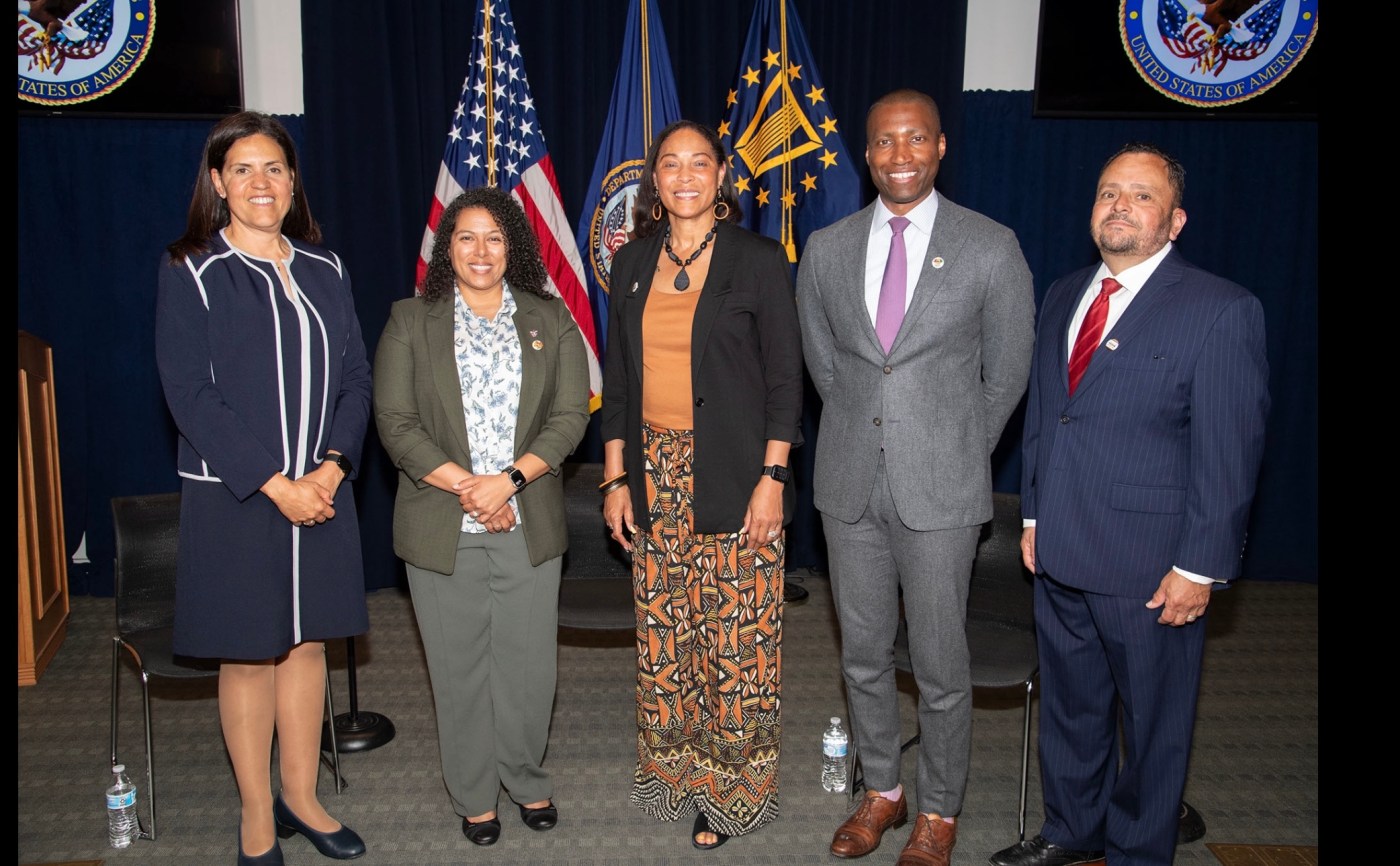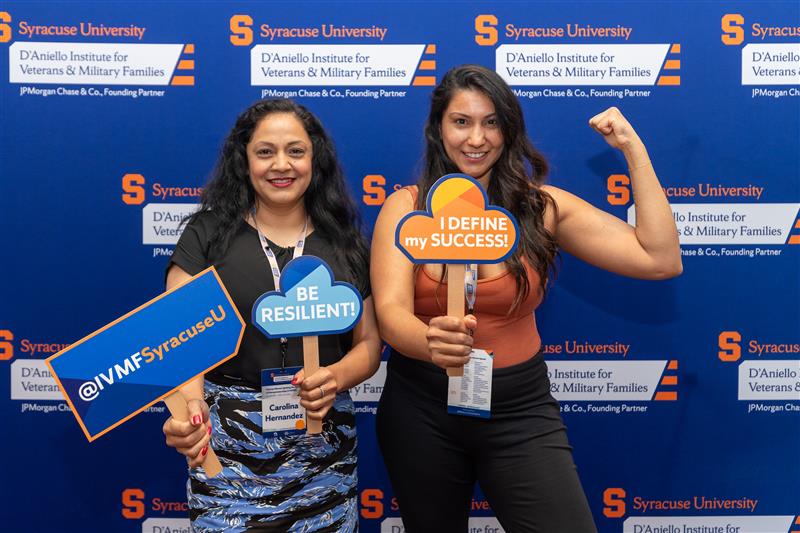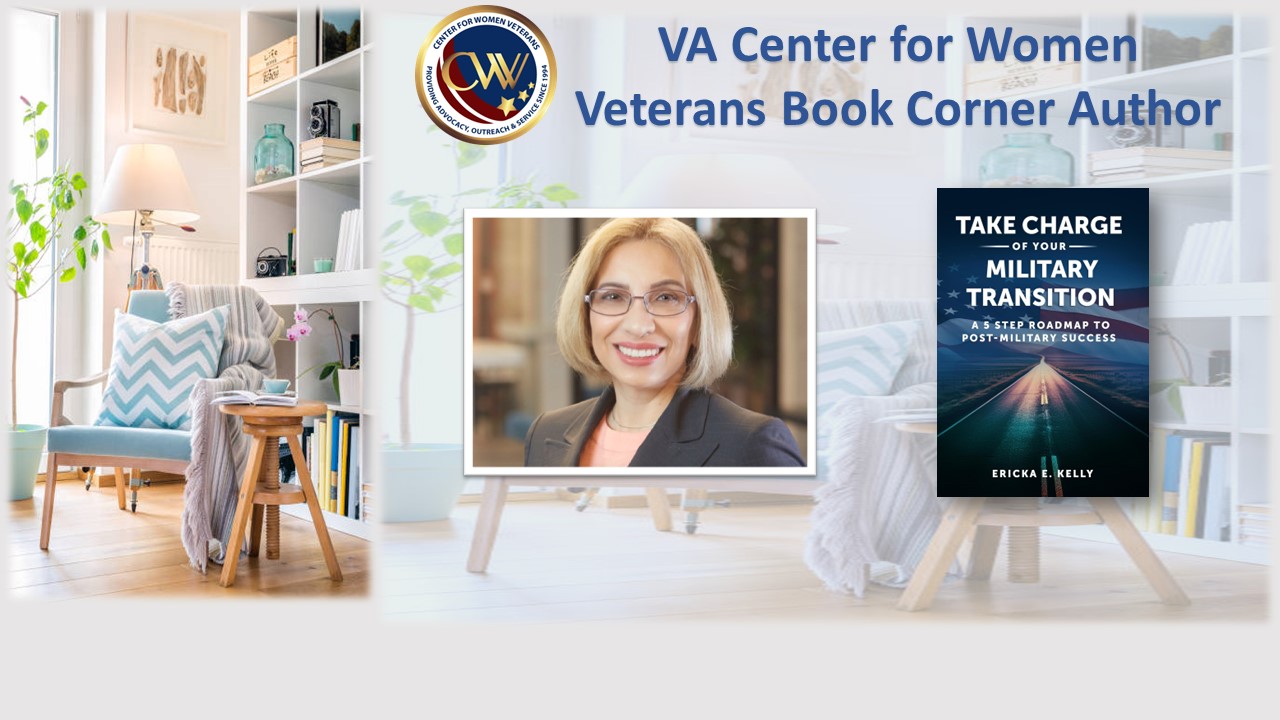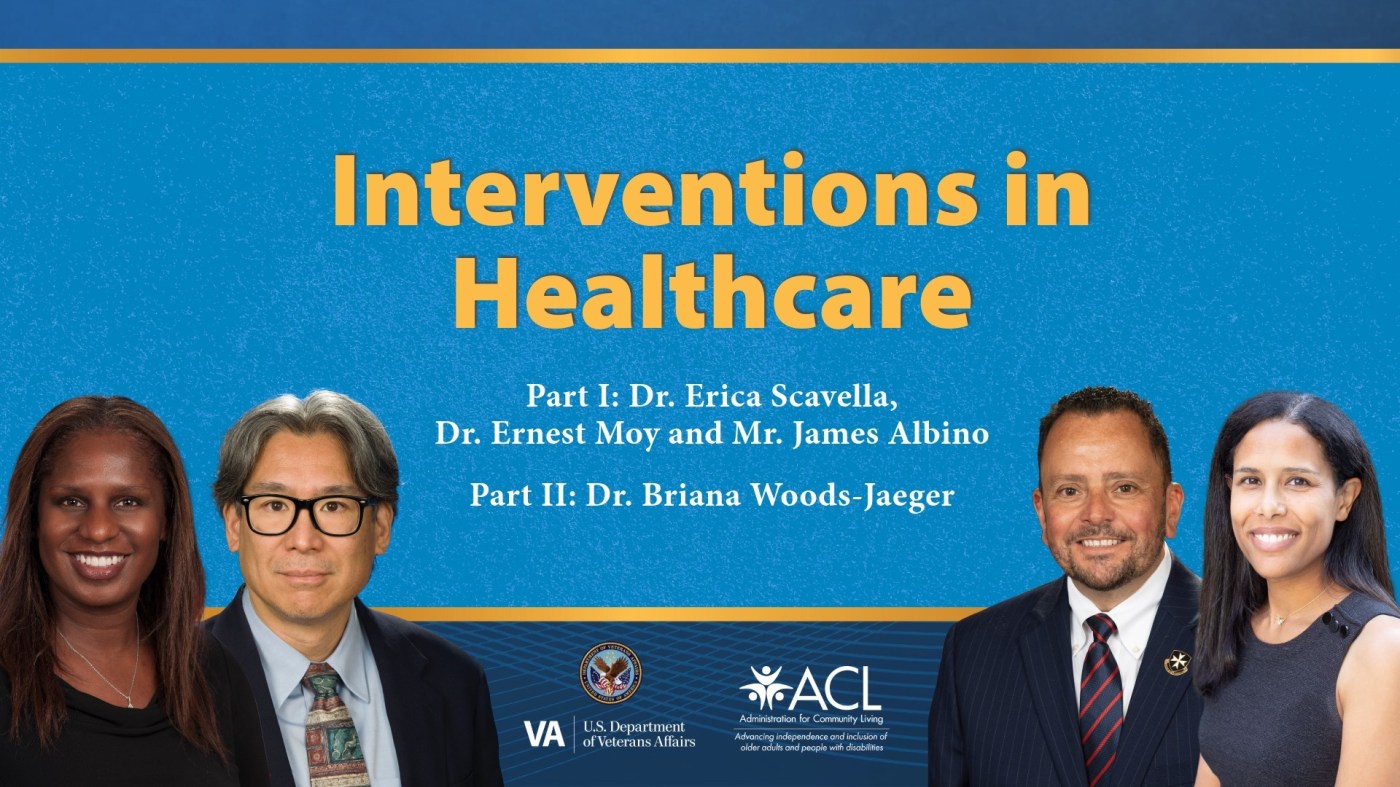VA’s Center for Minority Veterans (CMV) and Center for Women Veterans (CWV) held a hybrid event on June 18 to mark Juneteenth at VA headquarters in Washington, D.C. For the event, Army Veteran Stephanie Merlo sat down with retired Army General Dr. Linda Singh and Anthony Woods, secretary, Maryland Department of Veterans Affairs, for a conversation on the nature of our Nation’s ancestral roots and the history of Juneteenth.
Merlo kicked off the event with a discussion of the history of Juneteenth, also known as Freedom Day or Emancipation Day, when Union soldiers arrived in Galveston, Texas, and announced the end of slavery in the state. This announcement came more than two years after President Abraham Lincoln’s Emancipation Proclamation, which had declared all slaves in Confederate states to be free. Weaving in family history, she told a story about one of her relatives remembering the moment black soldiers came to town and told them they were free, and how her great-great grandfather Charles (Charlie) Brown started celebrations to mark the date.
Merlo grew up only knowing Juneteenth as a celebration with parades, parties, contests and food. When she moved to Virginia later in life, she was shocked to see that Juneteenth wasn’t the widely celebrated event she was accustomed to.
The Juneteenth holiday enables VA the opportunity to remember and acknowledge African Americans who have served valiantly in every American conflict, from the Revolutionary War to present day missions. Celebrating Juneteenth allows VA to honor the contributions and sacrifices of African American Veterans who fought for a nation that didn’t always grant them equal rights.
Dr. Singh also spoke of her family’s history. It wasn’t until later in life that she reflected on what it meant that her grandmother’s hazel eyes would, at times, turn blue.
“The land I grew up on in Maryland was my great-grandmother’s. She looked white but was mixed—half white and black.” That land “was purchased for her to be free. My grandfather served in World War 2 in the Navy, and I can’t even imagine during that time serving in the Navy when you know we were still fighting for really our rights, so that’s what inspired me to join the military,” Singh shared. “For my part, there is a family parable about my uncle and Dad, both of whom served in combat during World War 2. They were about 11 months apart in age and nearly identical in speech, mannerisms and lively sense of humor except for their skin tone. One was dark, the other light-skinned. When they were discharged from the same Army base at the same time and received their military discharge, one was designated black, the other white. This family allegory demonstrated—for me—the importance of truly understanding our ancestral roots, which are steeped in rural Puerto Rico and go back two hundred years. If you don’t gain an understanding and appreciation for all your roots, then you can’t really envision what the power of the future can be. We all have a heartbeat that creates us and that is how we can find a commonality and perspective.”
Maryland Secretary Woods spoke of honoring heritage and overcoming adversity. He recallled being raised by his mother, an Air Force Veteran, who suggested he reconsider West Point and his future in higher education. He would go on to attend West Point, but was kicked out under “Don’t Ask, Don’t Tell” (DADT) in 2009. He went on to help secure its repeal and subsequently returned to the Army Reserve. It wasn’t until recently that Woods fully learned his family history. His sense of service unwavering, he continues to fight for inclusive policies so that all can serve.
CMV and PrideVA believe that events like these can help educate and build a more inclusive society, one in which it is safe for all Veterans to feel welcomed and respected. By showcasing the importance of visibility and having a seat at the table, we can ensure that VA is representing every single heartbeat that has served.
Topics in this story
More Stories
Syracuse University’s Institute for Veterans and Military Families is helping women Veterans and military spouses launch their entrepreneurial journeys.
This month’s Center for Women Veterans Book Corner author is Air Force Veteran Ericka E. Kelly, who wrote “Take Charge of Your Military Transition.”
VA and the Foundation for Social Connection (F4SC) are reshaping how future medical professionals understand and address social isolation among Veterans.





